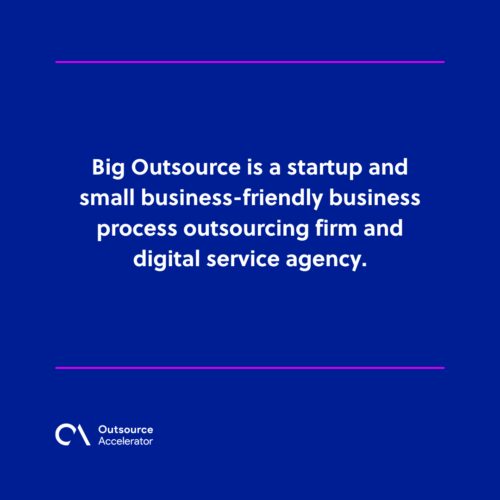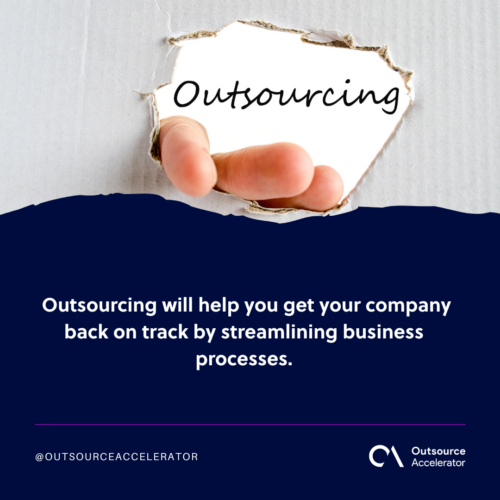Insights on how various BPOs operate in new normal

COVID-19 has had a significant global effect, especially on the business and consumer sector. Industries like retail, transportation, education, and healthcare, are experiencing substantial transformations in unexpected ways.
Most companies admit that their activities and response planning were inadequate for a disturbance of the crisis.
At the Outsource Accelerator Podcast with Derek Gallimore, Pennard Estrellado, head of business development of Big Outsource, they talk about how outsourcing solutions will work for the new normal.
And how outsourcing can be beneficial for any scale of business amid a pandemic.
Big outsource now a sourcing partner of ours.
Many considerations should be made before an organization selects a possible outsourcing partner. Business owners must have a clear and open picture of their short- and long-term objectives.
Collaboration with an outsourcing firm begins with developing a plan that achieves the desired result.
Since 2014, Big Outsource is a startup and small business-friendly business process outsourcing firm and digital service agency.
The distinction between Big Outsource and other BPO firms in Manila or globally is that they behave more like an arm of their clients’ offices than a third-party outsourcing vendor.
Big Outsource will assist the company in dealing with the effects of the pandemic.

The benefits of outsourcing during a crisis
Big Outsource knew that “the impact of COVID has been big for everyone and not least for the outsourcing industry.”
Given the numerous challenges your company could face as a result of COVID-19, using a third party to meet your workforce’s needs makes sense. Outsourcing will help you get your company back on track by streamlining business processes.
Outsourcing can assist you in regaining control of your company.

Here’s how outsourcing can help your business during the pandemic:
Optimization of cost
One of the primary reasons businesses outsource is to save resources. You will increase the price you would pay to the supplier through outsourcing.
Depending on the requirements, they will be in charge of recruitment and training.
Pennard mentioned, “an office work to a hybrid setup was somehow streamlined.” As the pandemic fades, several businesses consider a new hybrid virtual model that combines remote and on-site jobs. Some workers work on-site, and other employees are working from home.
Improves competitiveness
While the pandemic affected company activities, the need to maintain a high level of performance did not.
The pressure to reconsider every aspect of your business to produce more value and provide a better product/market match has only increased.
Lower risk
Beyond financial risk, the pandemic revolutionized risk assessment to include supply chain, organizational, employee health and safety, and creativity.
Risk management is inextricably linked to long-term stability and agility today and in the future.
The failure of an organization to move quickly and efficiently enough to function in a different way or on a new scale creates risk.
With an eye toward adaptation, successful leaders must be skilled at handling complexity and risk through a broad spectrum of functions.
What is the future of outsourcing?
Outsourcing has changed, becoming more structured and controlled. Aspects of the conventional outsourcing system are flawed, and businesses can now develop more resilient approaches to defend similar incidents.
For the near future, it seems that some remote working arrangement will be in effect.
This fact highlights the significance of organizations including sufficient data and information protection standards in their outsourcing arrangements.
The implementation and operation of outsourced agreements are often dependent on solid governance processes and mechanisms.
These processes depend on the presence of representatives from the organization at the grounds of its provider and, likewise, communal working areas, physical conferences, and meetings.







 Independent
Independent




